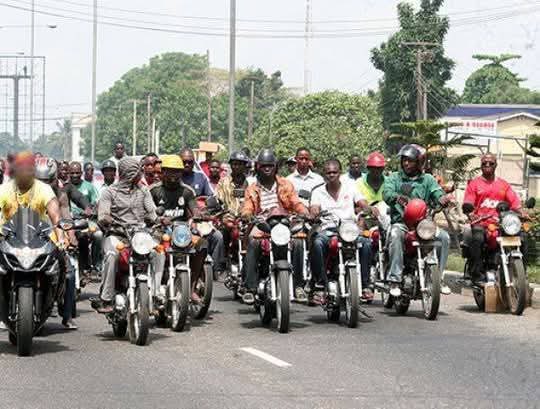Daniel Otera
An unrelenting surge in unregistered commercial motorcycles in Plateau State has prompted the government to issue a 72-hour ultimatum to operators, citing serious violations of existing urban safety laws.
The sudden increase in motorcycle activity across the Jos-Bukuru metropolis has drawn security concerns and revived debate around long-standing restrictions under the Greater Jos Master Plan.
On Monday, the Plateau State Ministry of Transportation observed that over 400 motorcycles were operating illegally in Jos-Bukuru, triggering renewed enforcement of a citywide ban. By Tuesday, the government ordered their immediate evacuation, declaring that any non-compliant operator would face prosecution.
Although the restriction on motorcycles in urban areas has existed for years, the scale and speed of the recent influx, some describing it as between 200 to 500 new entrants, has raised questions about the underlying factors driving the sudden wave of violations.
Before the government’s formal response, a message titled “Security Alert and Concern by Observant Jos Residents” circulated widely across social media platforms, amplifying fears about the identity and intentions of the new riders.
The message alleged that the riders arrived with brand new Bajaj motorcycles, wore crash helmets and face masks, and operated only within a tight radius, often unfamiliar with the local terrain.
The posts suggested a potential organised pattern, with emphasis on the riders’ accents and limited operational zones. While the Plateau State Government did not officially acknowledge these specific claims, the timing of the alert and the rapid response that followed suggests growing unease over public safety and urban control.
Motorcycles, commonly known as okadas, have long been banned within central Jos and surrounding districts due to their frequent links to criminal activity and traffic hazards. The restriction forms part of the Greater Jos Master Plan aimed at improving urban safety and transportation order.
According to the National Bureau of Statistics (NBS), motorcycle-related crashes account for over 18 percent of all road traffic accidents recorded in urban Nigeria. The figures indicate a higher fatality rate in areas with weak enforcement of traffic regulations.
In Plateau State alone, 382 road traffic accidents were recorded in 2024, with almost one-third involving motorcycles, many of them within the Jos urban centre. These figures are drawn from the NBS Road Transport Data for Q2 2024, which tracks the frequency and causes of traffic incidents nationwide.
Security reports over the past years have also linked motorcycles to armed robbery, phone snatching, and insurgent movements particularly in volatile areas of north-central Nigeria. These concerns have reinforced government resolve to strictly enforce the ongoing ban.
The Greater Jos Master Plan, a long-term development blueprint first rolled out in the early 2000s, formerly restricted commercial motorcycles from designated high-density urban corridors. Despite enforcement lapses, the policy remains one of the state’s most prominent urban control measures.
To reinforce the directive, mobile courts have been deployed across Jos-Bukuru. These mobile judicial units are expected to expedite the prosecution of violators, removing bureaucratic delays and ensuring quick penalties.
Authorities have not disclosed the specific number of mobile courts, but early sightings were reported near Katako, Bauchi Road, and Farin Gada areas highlighted in the social media alert.
The Commissioner for Transportation, Davou Jatau Gyang, reaffirmed in a statement that the order was non-negotiable and crucial to maintaining safety. He warned that any defaulters remaining in restricted areas after the 72-hour window would face legal action without exception.

Motorcycles remain a vital means of transport and daily income across many parts of northern Nigeria, particularly in underserved urban and peri-urban communities.
According to the Nigeria Labour Force Survey (Q1 2024) by the National Bureau of Statistics (NBS), northern states continue to grapple with high unemployment rates, with Plateau State recording one of the highest at 33.6%. Although detailed sectoral breakdowns are limited, informal employment including commercial motorcycle operation accounts for the majority of jobs in these regions, especially among young men struggling to find formal work opportunities.
The sudden surge of commercial motorcycles in Jos, however, has reignited tensions between livelihood needs and public safety imperatives. Critics of the ban argue that without alternative transportation and job opportunities, enforcement will only breed resentment and economic hardship.

